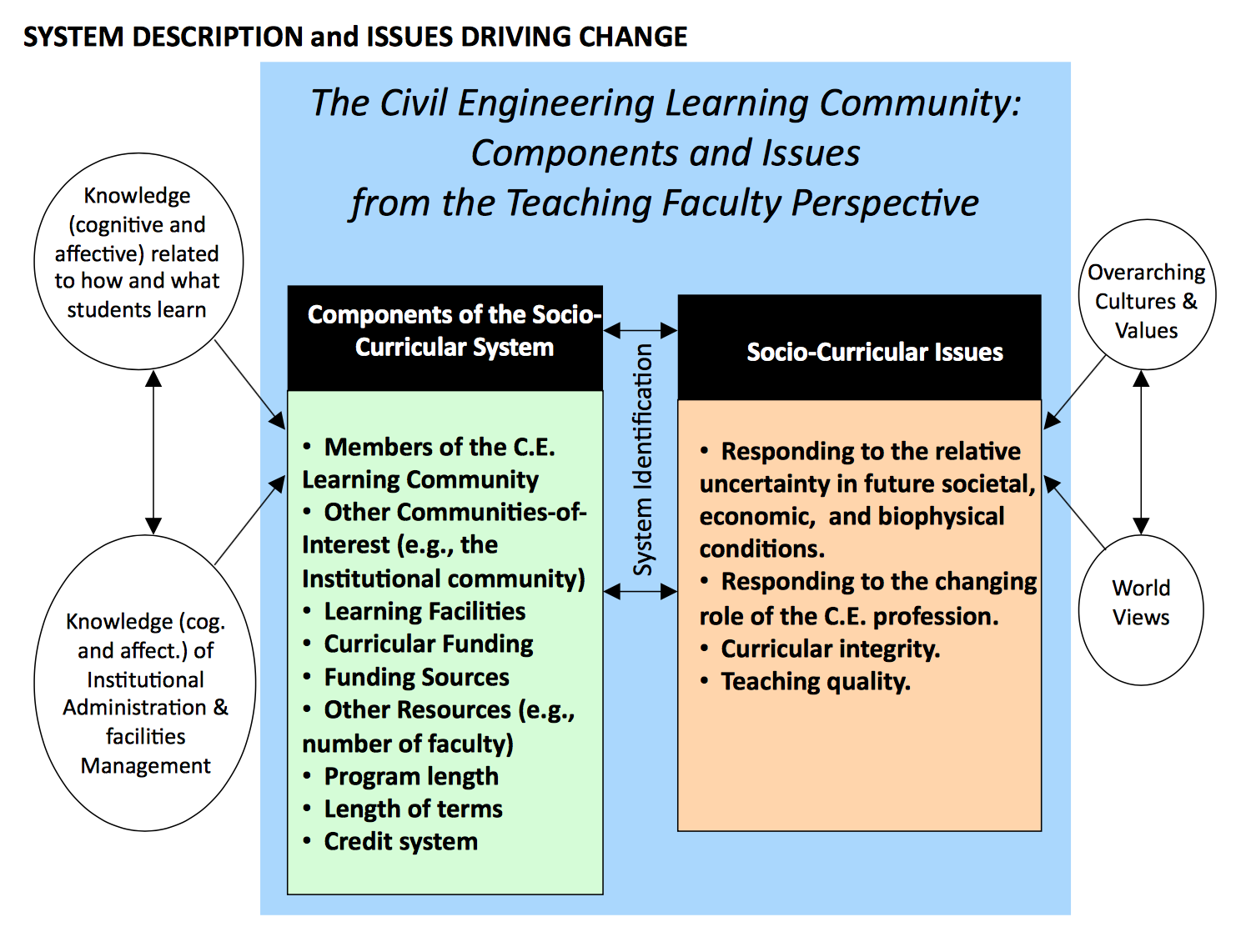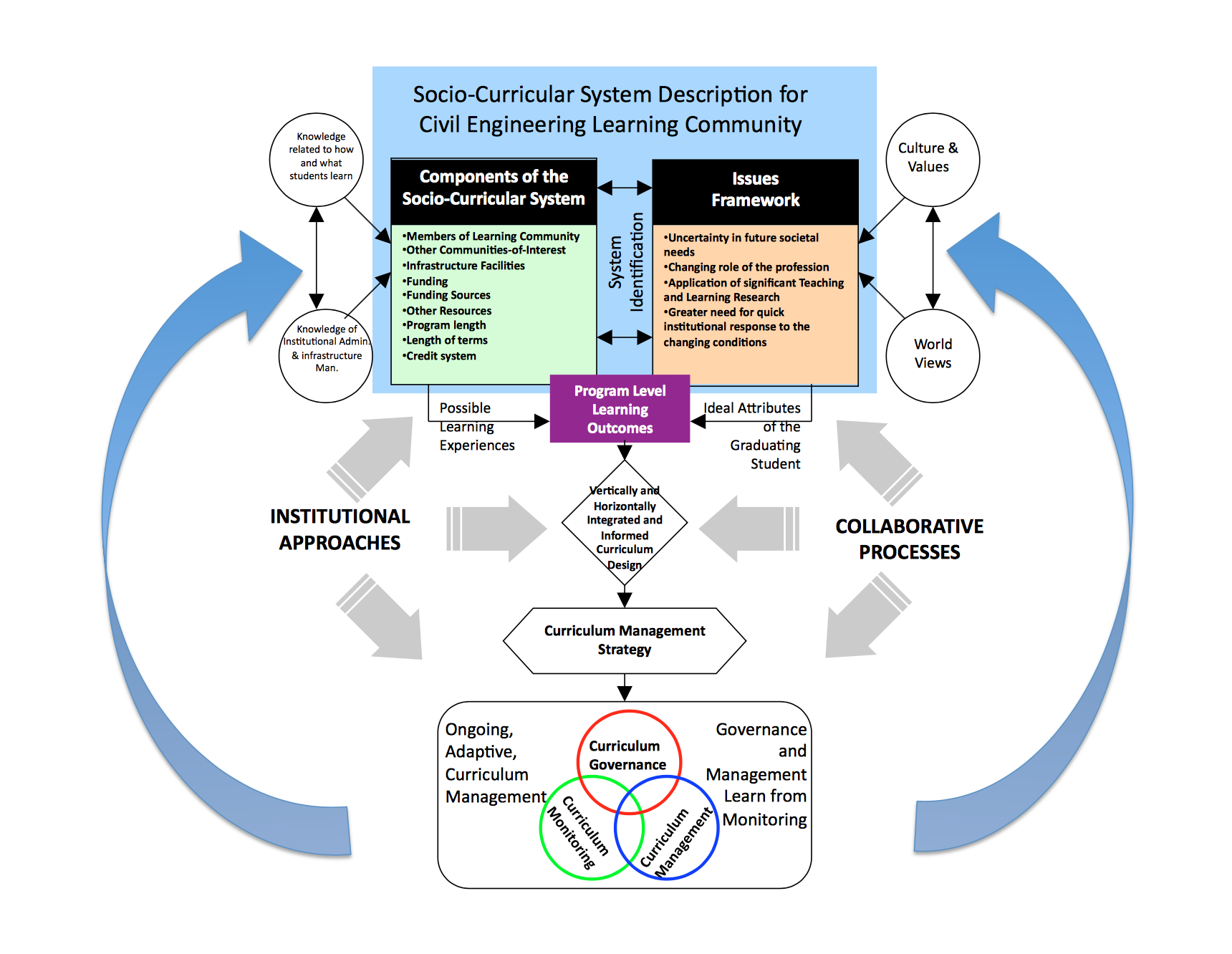Canadian Engineering Accreditation Board Outcomes-Based Assessment
The site linked to the above title presents summaries of curriculum assessment work for the Civil Engineering Undergraduate Program offered by the University of British Columbia for the 2008 and 2014.
A Curricular Assessment Framework
Curriculum assessment requires defining the system or “learning community” relating to the curriculum to be assessed. Below is a conceptualization of the civil engineering learning community at the University of British Columbia as an adaptive (i.e. ever-evolving) system:
Curriculum assessment emerges from the need for curriculum management. The sustainable management of ecosystems, which, like curricular systems are adaptive, has informed my perspective of curriculum management of the professional civil engineering program offered at the University of British Columbia. Here is an illustration of the curriculum management framework that guides my understanding[1].
A framework for managing the Engineering Socio-Curricular System.
This framework starts by recognizing the social complexity of the civil engineering learning community and the factors that influence the behaviour of the community.
Program Indicators (also know as Program Learning Outcomes (PLOs)) are the foundation of the curriculum design. They are developed from discussions within the learning community leading to consensus decisions of how to define the indicators (a.k.a. PLOs).
A curriculum management strategy is required for the curriculum to operate, and for quality learning by students to occur. The management strategy includes the design of a networked relationship between the curriculum governance, the curriculum management, and information (i.e., data) that informs both governance and management decisions.
GOVERNANCE
Curriculum governance is enacted by the Department Head, according to department, faculty, and university policies. The Curriculum Improvement Committee in UBC’s Department of Civil Engineering recommends curricular actions to both the head and the Department at large. This body needs to know the strengths and weaknesses of the curriculum, so that informed trade-offs, revisions and planning can occur.
MANAGEMENT
The role of the department head (teaching allocation, curriculum administration such as scheduling, financing, and ensuring the curriculum management system is working) is crucial to a well-functioning curriculum. The department’s Curriculum Committee, which differs from the Curriculum Improvement Committee, shepherds curriculum change through the administrative system of the university.
MONITORING
Monitoring the student experience, monitoring changes in key stakeholders (e.g., the profession, the university), monitoring the levels at which curriculum goals are met (including learning goals, budgeting, etc), and reporting in a meaningful way to stakeholders (e.g., faculty members, students, the accrediting body, the university, etc.) happens here. It is crucial that the people in the governing and managing roles learn from the information collected during curriculum monitoring.
Curriculum monitoring and assessment are the keys to developing an evidence-based curriculum. Accreditation reporting can be leveraged to achieve meaningful curriculum assessment leading to informed curriculum renewal decisions.
Outcomes-Based Curriculum Assessment Reporting for the Civil Engineering Program at the University of British Columbia
[1] This framework is based on the work of James Kay and David Waltner-Toews outlined in Implementing the Ecosystem Approach, Chpt 14 of The Ecosystem Approach: Complexity, Uncertainty, and Managing for Sustainability (2008), Ed.s Waltner-Toews, Kay, and Lister.


